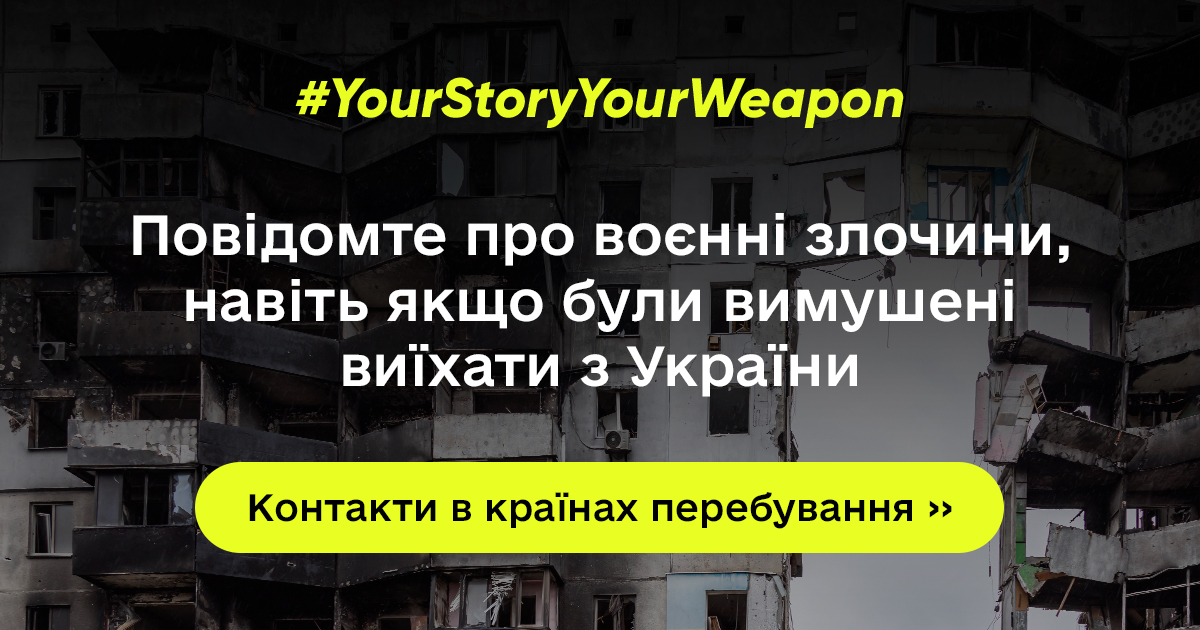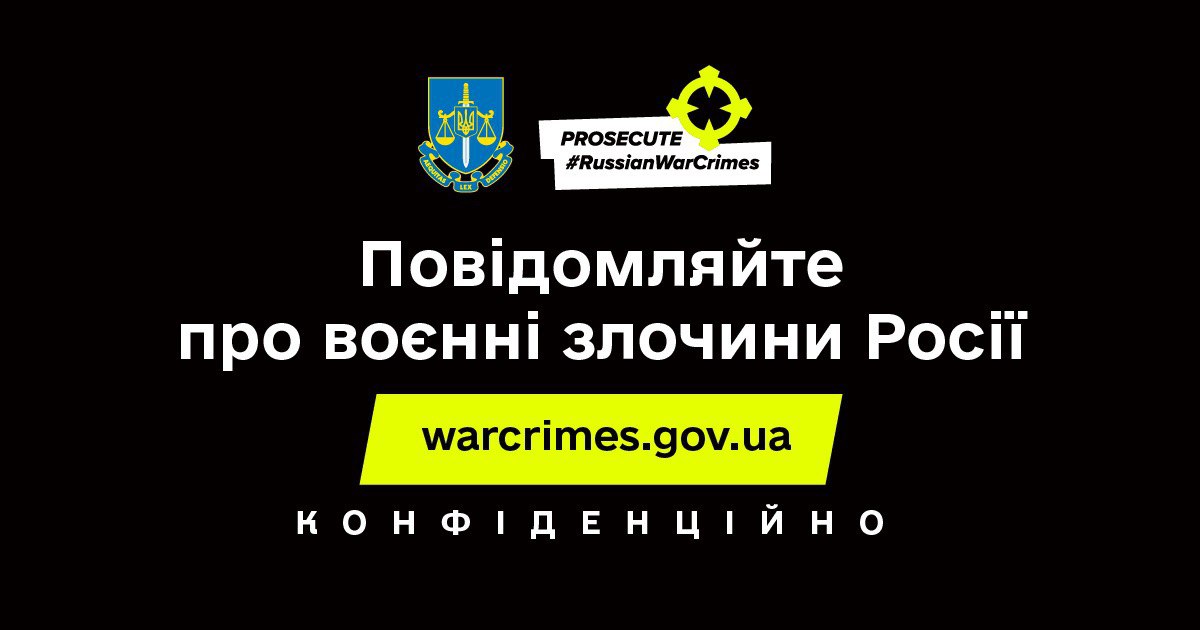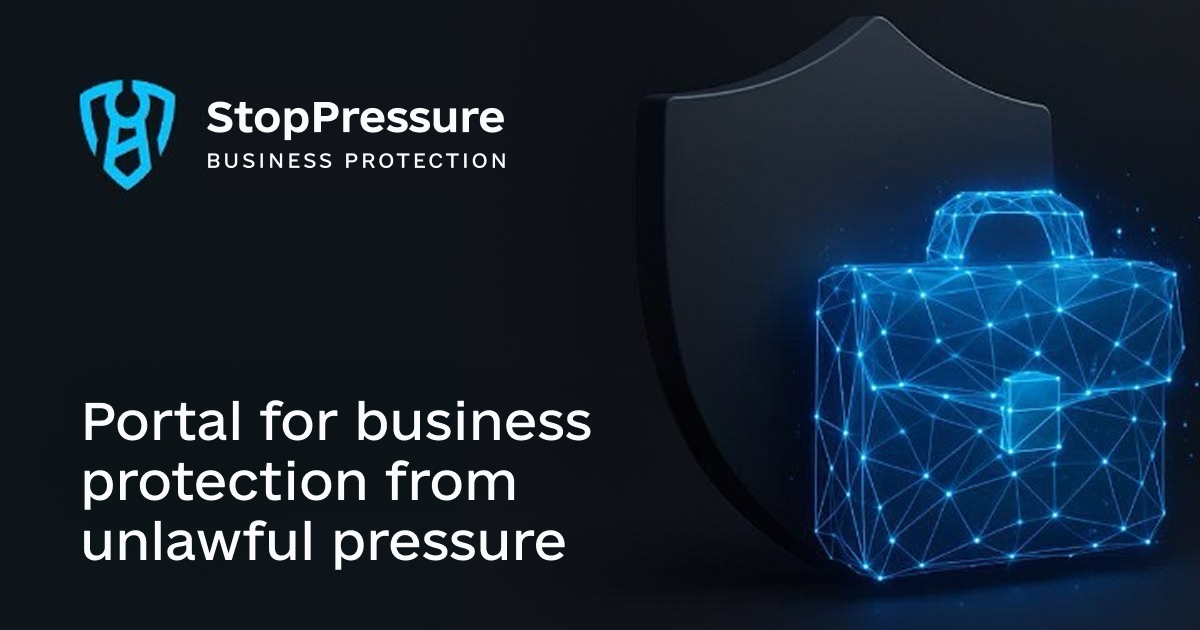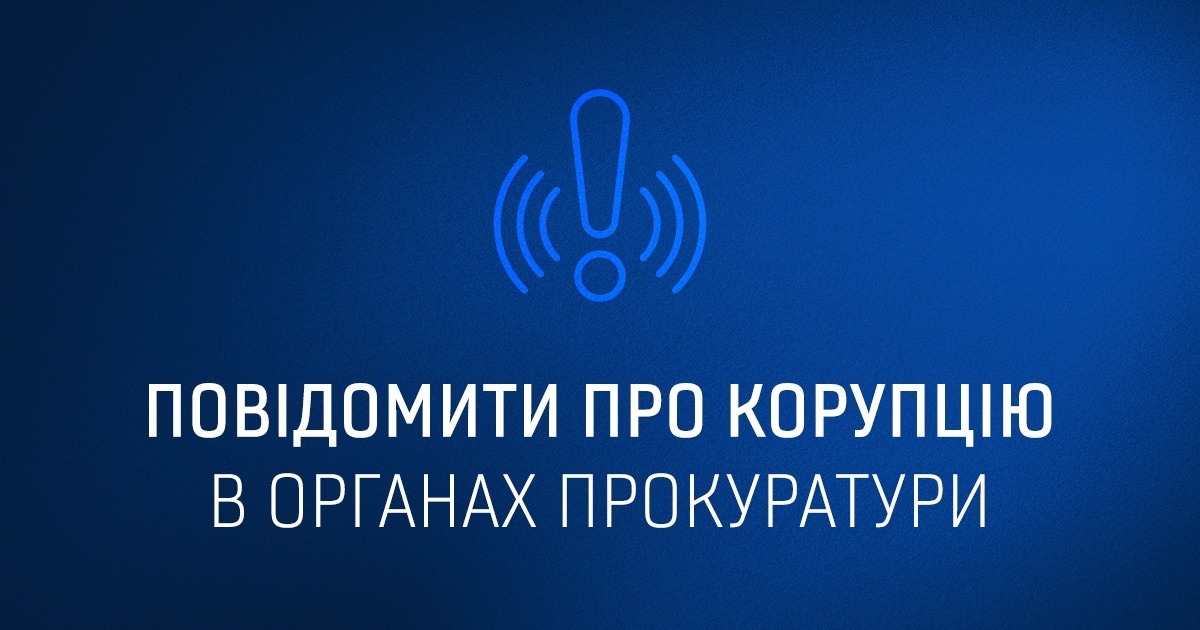Can Ukraine protect witnesses to war crimes?
10.09.2025
Unofficial translation of the IWPR article
Experts warn that unresolved financial and legislative issues hinder the current system.
In March 2022, Tetiana (name changed) experienced sexual violence and brutal robbery by a Russian soldier in the frontline city of Sumy in northeastern Ukraine. When she finally had the opportunity to testify, key measures were taken to protect her physical and mental well-being.
Throughout the process, the staff of the Victims and Witnesses Support Coordination Center, a specialized unit of the Office of the Prosecutor General, guaranteed her confidentiality.
The center provided her with a pseudonym, which also helped her psychologically prepare for her testimony. The case was heard in absentia and in a closed session to ensure Tetiana's protection.
She joined via video link, sitting with her back to the camera and wearing a hooded outfit so that other participants would not recognize her.
Thanks to these measures, Tetiana was able to confidently answer all questions from the judge and the defense attorney. The 22-year-old Russian soldier was subsequently sentenced in absentia to ten years in prison on August 19, 2025.
Tetiana is one of several hundred witnesses of Russian war crimes who have testified in court under such guarantees. However, experts warn that the witness protection system is hampered by unresolved financial and legislative issues. Due to a lack of funding for witness protection, providing such essential things as safe housing or security is not always possible, which often discourages people from participating in justice processes.
Moreover, coordination between agencies is often insufficient, especially given the enormous workload of cases related to mass atrocities.
“Unfortunately, it’s not like in foreign films, where there are specialized programs for every situation,” said Veronika Plotnikova, head of the Coordination Center for Victims and Witnesses. “We do not have a single centralized body responsible for security measures. The situation is complicated by the fact that almost every law enforcement agency has its own witness protection unit, and they may all have different approaches to the same tasks.”
According to Ukrainian legislation, witnesses have the right to a range of protective measures, which may include the protection of their homes and property, as well as the provision of personal security means and alarm systems, or even changes to documents, appearance, workplace, or educational institution. Confidentiality of personal data is guaranteed, and a request for a closed court hearing can be submitted.
The specific needs of witnesses or victims depend on a whole range of circumstances and can vary from dental care to specialized social support.
The investigator handling the case is responsible for determining whether the risk to the individual is serious enough to require security measures, relocation, or other personal protection measures, as well as whether there are state funds available to cover these costs.
Alternatively, if a witness faces a real threat but state funding is unavailable, investigators may seek assistance from volunteer organizations.
“Everything depends on the budget available to the specific agency,” Plotnikova continued. “We use all possible resources, including assistance from non-governmental organizations and local communities. Sometimes this requires painstaking work from the investigators and prosecutors themselves – efforts that go beyond the formal frameworks of protection but are achieved through cooperation with the public and private sectors.”
Best Practice
An independent group of foreign experts, operating outside the Office of the Prosecutor General, is currently studying best practices from other countries to create an updated comprehensive system for the protection of participants in criminal proceedings.
This includes considering the establishment of a national agency to ensure their safety, modeled after Bosnia's State Agency for Investigations and Protection (SIPA).
Experts also point to the example of Kosovo. During investigations of war crimes in the late 1990s, international organizations, as well as national courts in Serbia and Kosovo, faced challenges in ensuring the safety of witnesses. Information was leaked online, leading not only to threats against witnesses but also to a number of murders.
Ukrainian officials note that some Ukrainian witnesses of Russian crimes are simply afraid for their safety and not only do not come to court to testify, but also do not acknowledge that they have become victims or witnesses of crimes.
Plotnikova stated that the risks of disclosing information about the victim cannot be underestimated.
“For example, the media may publish personal data, photographs, and other details about victims and suspects,” she explained. “This significantly complicates efforts to protect witnesses and undermines the rights of the accused.”
Another issue is that survivors and witnesses in occupied territories are physically inaccessible and cannot be involved in the proceedings.
Currently, the maximum resources available to Ukrainians in occupied territories are Ukrainian websites accessed via VPN and chatbots that allow reporting war crimes and provide some basic psychological resources. However, even this method is dangerous and punishable by the Russian occupying authorities.
“When working with victims and potential witnesses in occupied territories, their life and safety are the absolute priority,” Plotnikova explained. “We can always gather more evidence, but we can never restore a person's life and health.”
Testimonies can also be provided from abroad. According to the Criminal Procedure Code of Ukraine, witnesses and victims can testify, be interrogated, and attend court sessions remotely via video conference. They also have the right to change their appearance and voice to conceal their identity.
Strategic Plan
The reform of the witness protection system is likely to take several years, with the deadline for submitting a new bill to the Ukrainian parliament set for 2027.
“According to the current comprehensive strategic plan for reforming law enforcement agencies, the Ministry of Internal Affairs has been tasked with developing new legislation, as the existing laws are outdated. They date back to the 1990s and no longer meet today’s challenges,” Plotnikova said.
The strategic plan, signed by the president in 2023 based on EU recommendations, focuses on reforms to ensure the safety of participants in criminal proceedings. It envisions effective protection for applicants, whistleblowers, victims, and witnesses.
The document includes the establishment of a National Service for Guaranteeing the Safety of Participants in Criminal Proceedings. However, there are just over two years left to implement the entire system.
International partners are ready to share their experience and contribute to building the future witness protection system in Ukraine. A key priority is ensuring internal consistency and coordination of the new legislation among all law enforcement agencies involved in the protection of witnesses of international crimes.
211








